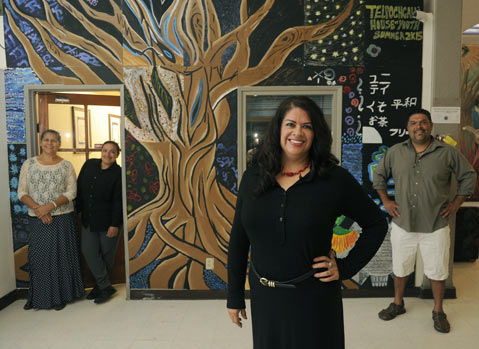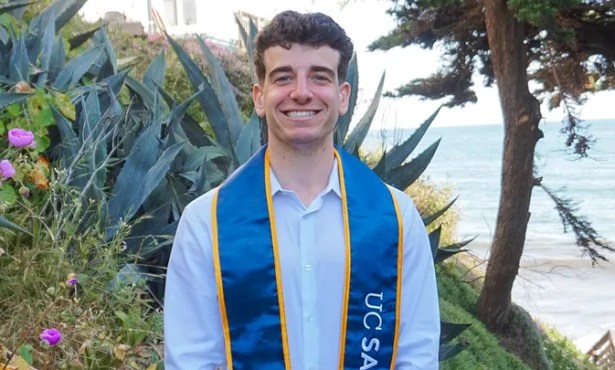Casa de la Raza Back from the Brink
Latino Community Center Avoids Foreclosure

The financially embattled La Casa de la Raza successfully fended off foreclosure late last week, wiring an undisclosed sum to its lender to secure a 60-day delay of the July 20 public auction of its longtime lower Eastside community center.
The news of imminent foreclosure instigated a range of emotions, from the small panics of longtime patrons to eye rolling from those familiar with La Casa’s track record of financial close calls. Indeed, La Casa’s five full-time staffers and nine-member volunteer board of directors have faced three previous potential shutdowns in as many years.
Fielding concerns — and criticism — since the July 15 court ruling that cleared the way for the auction of the half-acre parcel and its 26,000-square-foot multipurpose building, Raquel Lopez, La Casa’s executive director since 2005, said that closing the doors was never an option. “We would never allow foreclosure to happen,” she said. “The legacy of this place is why we will never give up.”
That legacy — soaked in the incubation of Chicano theater, diverse lineups of emerging bands, AA meetings in Spanish, and afterschool and summer programs stretching back to La Casa’s 1971 inception — provides comfort and identity for the city’s often disenfranchised Latinos, and ultimately, says Board President Marisela Marquez, helps them learn to how to stand up for themselves.
It could also help to explain why the money wired to placate La Casa’s lender — Fidelity Mortgage Lenders — came from within and not from an eleventh-hour donation. But if La Casa already had the money, why didn’t it renegotiate with Fidelity instead of paying a law firm to try to halt foreclosure? “We felt that our treatment at the hands of this mortgage company was unfair,” Marques said. “That’s why we addressed it [in court].”
During the next two months, a “top priority” is to find “a new loan with more favorable terms … to replace Fidelity,” said Matt Clarke, an attorney representing La Casa. Added Lopez, “It’s a crappy loan with a crappy lender; we want to be done with it.”
Another complication finds La Casa going back and forth with the Santa Barbara County Assessor’s Office over nine years’ worth of paid property taxes, calculated when La Casa was viewed as a for-profit entity because it lacked tax-exemption certification from the California State Board of Equalization. La Casa has since reestablished that certification and is now seeking close to $100,000 in reimbursement from the county.
Looking ahead, boardmember Elizabeth Robinson says it’s important for La Casa to steer away from “crisis mode” and stay focused on broadening its appeal beyond the Latino community, in addition to beefing up its events and social media presence. On the programming front, Robinson — a KCSB veteran — is in the process of launching La Casa’s low-powered FM radio station, which will, by year’s end, broadcast community news, events, and music from Goleta to Carpinteria.
Sounds great. Yet a number of La Casa supporters have become flummoxed at best, apoplectic at worst, and they’re not surprised by this latest episode of money trouble. Over the years, some public and private donors have chipped in or offered to help only to find their outreach failing to gain traction. This latest chapter briefly featured an unlikely benefactor — notorious landlord Dario Pini, who offered $40,000 to settle La Casa’s differences with Fidelity in exchange for spots on the board, one for himself and a few for prominent Latino acquaintances. Pini’s proposal was ultimately deemed moot because Casa settled with internal funds.
“La Casa is a really important part of the community,” said Pini, who’s currently under the city gun to tighten up his operations. “A lot of my tenants participate in activities they offer. There are plenty of ways for La Casa to make money; it just needs the right board.”
In that respect, Lopez said La Casa’s board of directors “is definitely growing in the next two months,” adding four to six new seats and replacing one or more existing boardmembers. “The board is aware that they need to make changes to the way they make money to create a more stable situation.” In the meantime, La Casa will soon be drawing from its vast pool of volunteers to set up and operate its famous torta booth in De la Guerra Plaza during Old Spanish Days Fiesta.



